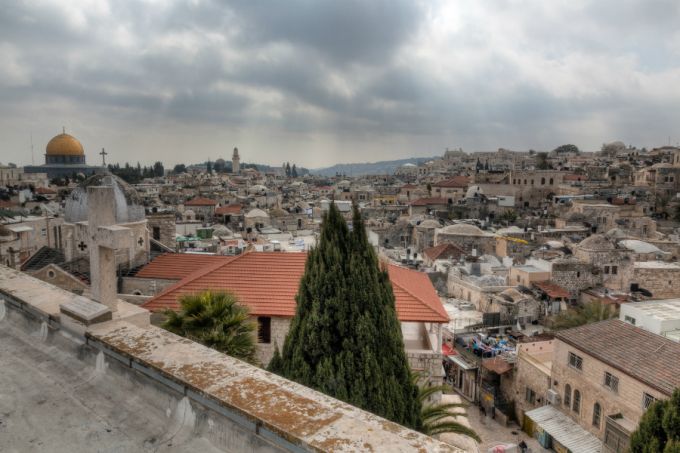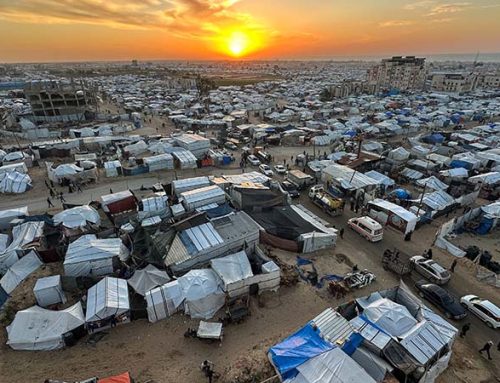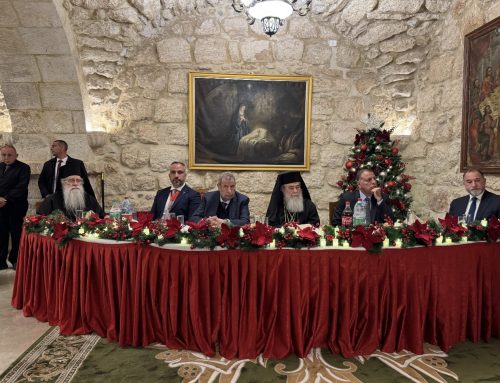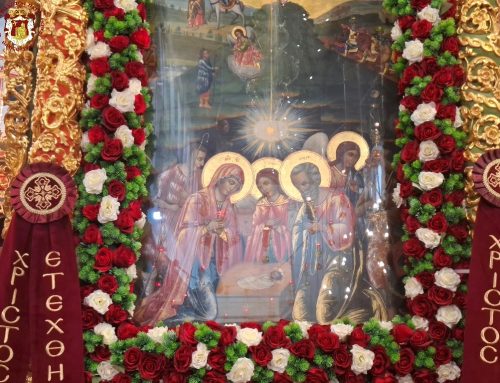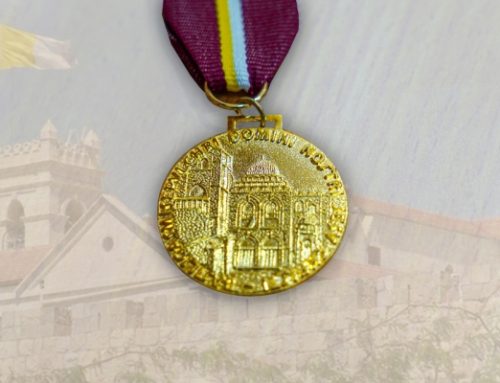– Peace was the focus of the Holy See’s representative in a recent speech to the United Nations, where he renewed calls to support negotiations between Israel and Palestine and between the warring factions in Syria.
“Certain elements among both peoples have suffered too long from the misguided view that force will resolve their differences. Only sustained negotiations, entered into in good faith, will resolve their differences and bring peace to the peoples of Israel and Palestine,” Archbishop Bernardito Auza, the apostolic nuncio heading the Holy See’s permanent observer mission to the U.N., said Jan. 26.
Speaking on behalf of the Holy See, he addressed the Security Council’s open debate on the situation in the Middle East and the Israeli-Palestinian peace process, saying it has stalled.
“With the lack of substantive negotiations taking place, acts of violence continue to spiral, bringing many to doubt seriously the continued validity of the Oslo Accords,” he said, referring to the 1993 agreement between Palestinian and Israeli leaders.
Archbishop Auza said the Holy See believes the Israeli-Palestinian peace process can advance only if it is directly negotiated between the two parties, with strong international support.
“This certainly requires courageous decisions from both parties and demands fair mutual concessions. But there is no alternative, if both Israel and Palestine are to enjoy security, prosperity and peaceful co-existence, side by side with internationally recognized borders.”
The archbishop cited Pope Francis’ Jan. 11 remarks to the diplomatic corps accredited to the Holy See. There, the Pope voiced hope that the New Year “can heal the deep wounds dividing Israelis and Palestinians, and enable the peaceful coexistence of two peoples who – of this I am sure – in the depth of their hearts ask only for peace.”
The nuncio commented: “Acts of violence and inflammatory rhetoric must be set aside in favor of the voices of dialogue to give both peoples that peace for which their hearts long.”
The comprehensive agreement between the Holy See and the State of Palestine went into force Jan. 2. The agreement addresses the activity of the Church in Palestine, the archbishop explained.
“In the complex reality of the Middle East, where, in some countries, Christians have suffered persecution, the Holy See hopes that the agreement may serve as an example of dialogue and cooperation, in particular for other Arab and Muslim majority countries.”
Archbishop Auza also discussed the Syrian civil war, which has lasted almost five years. The fighting includes the Syrian government and various rebel factions, including the Free Syrian Army, Kurdish separatists, the Islamic State group, and al-Nusra Front. Over 250,000 people have died in the conflict, with more than 11 million people displaced from their homes.
The archbishop noted that the conflict had attracted violent actors from abroad.
“More than being a conflict between Syrians, foreign fighters coming from all over the globe continue to commit unspeakable acts of horror against the civilian population in Syria and in parts of Iraq,” he said. “The influence of these foreign elements has led to sectarian violence and persecutions of religious and ethnic minorities.”
According to Archbishop Auza, Pope Francis is convinced that “only common and agreed political action can stem the spread of extremism and fundamentalism” that spawn terrorist acts in Syria, Libya, and other countries in the Middle East and North Africa.
Rather than repeating the “horrendous acts of violence” against the Syrian people, the archbishop repeated an appeal to stop the flow of arms into the region.
He urged strengthened humanitarian action to help refugees. He said refugee aid should help them remain in or near their home country, providing adequate food, medical supplies, water, electricity, and access to education.
Archbishop Auza said his delegation backed Security Council Resolution 2254, which calls for “the sovereignty, independence, unity and territorial integrity of the Syrian Arab Republic” and for a political settlement to the Syrian conflict.
The archbishop praised the Syrian peace talks that have now begun in Geneva.
“In spite of the many strong differences still to be found among the parties to the talks, the Holy See believes that these negotiations are the best chance the International Community has to bring a stable and lasting peace to Syria and to the region,” he said.
He also noted the upcoming humanitarian conference to be held in London Feb. 4. He said the Holy See hopes the conference will ease the suffering of people in the region and contribute to settling the Syrian conflict.
Source: CNA

